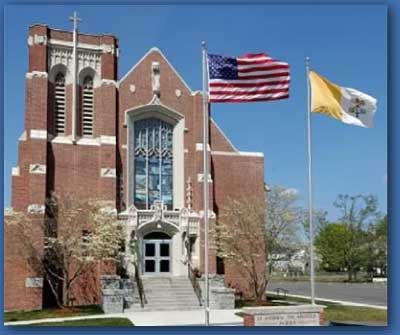Big “T” traditions
Traditions are important to families. Singing the family birthday song, making grandma’s banana bread, praying in a special way at holiday meals — traditions are the foundation on which strong families are built. Likewise, the Church was built upon the rituals and traditions of the apostles and the early Christian communities. This body of ritual and teaching is called Tradition (with a capital T), and it serves as a unifying force in the Church today. This Tradition is so important that the teaching office of the Church, called the magisterium, safeguards it.
We believe that that sacred Word of God is found in both Scripture and Tradition. In fact, the Tradition of the Church was in place before the Gospels were even written. It’s true! We practiced our faith long before we wrote about our faith. The first Christians were already meeting together, mostly in homes, celebrating the Eucharist, sharing the teachings of the apostles and encouraging one another at the time the New Testament was written down. This was the beginning of St. Paul addressing his letters to these early Christian communities.
Those who argue that Scripture alone should be the source of Christian teaching fail to recognize that in the first several centuries of the Church there was no “Bible” in the form we have today. Early Christian communities read from the Old Testament writings, the prophets and from the letters from leaders like Peter and Paul. The earliest writings in the New Testament reflect the belief and practice of the early Christians as the Holy Spirit guided the Church and her leaders. If we truly wish to understand Scripture, we must understand the context in which it was written — the Tradition of the Church.
FAITH AT HOME
Traditions that are handed down through the generations serve not only as the foundation for our faith historically, but are also a vital part of our faith today. Especially through the family, called the “domestic church,” we pass the teachings of our faith on to the next generation, in the words we say, as well as our family rituals and the way we live our daily lives. Today it is important that children and adults alike learn and experience the teachings of our faith in context — in the Christian community of the parish and the home.
Cultivate your family’s faith at home by practicing Sabbath. Make it known that Sunday is a day devoted to family. Be intentional about planning a day of rest and renewal together. Begin with Mass. Prepare a meal together. Share prayers and conversation. Turn off the television (and the computer and MP3 player) and listen to each other. Leave room for silence. At the end of the day, thank God for your family’s blessings.
This content comes to you from Our Sunday Visitor courtesy of your parish or diocese.





